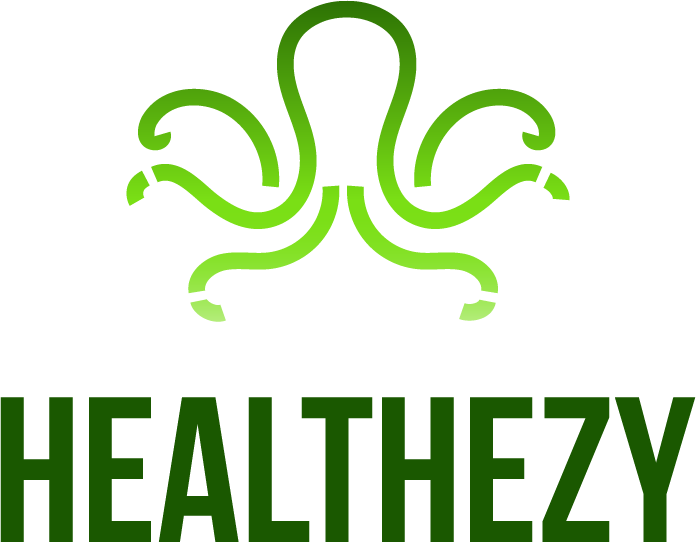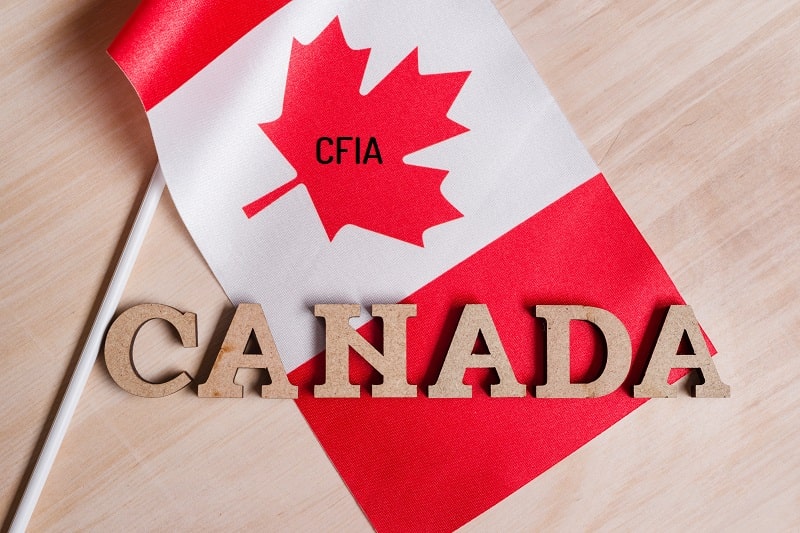Overview
Introduction to Health Canada & Canadian Food Inspection Agency
Health Canada and the Canadian Food Inspection Agency (CFIA) play crucial roles in ensuring the safety and well-being of Canadians. Health Canada is responsible for promoting and protecting the health of Canadians, while the CFIA is responsible for safeguarding Canada’s food supply.
Together, these two organizations work collaboratively to ensure that the food we consume is safe, nutritious, and of high quality. In this article, we will delve into the functions and responsibilities of Health Canada and the CFIA, highlighting their efforts to protect the health and safety of Canadians.
Roles and Responsibilities
The Health Canada and Canadian Food Inspection Agency have distinct roles and responsibilities in ensuring the safety and quality of food and health products in Canada. Health Canada is responsible for regulating and monitoring the safety and efficacy of pharmaceutical drugs, medical devices, and natural health products.
They also provide guidance and information to Canadians on health-related matters. On the other hand, the Canadian Food Inspection Agency is responsible for regulating and inspecting food products to ensure they meet the required safety standards.
They also enforce regulations related to animal health and plant protection. Together, these agencies play a crucial role in safeguarding the health and well-being of Canadians.
Importance of Health Canada & Canadian Food Inspection Agency
The Health Canada and Canadian Food Inspection Agency play a crucial role in ensuring the safety and quality of food and health products in Canada.
These government agencies work together to establish and enforce regulations, conduct inspections, and monitor the production, import, and distribution of food and health products. Their main objective is to protect the health and well-being of Canadians by preventing and addressing potential risks and hazards associated with food and health products.
Through their rigorous testing and monitoring processes, Health Canada and the Canadian Food Inspection Agency help to maintain high standards and ensure that Canadians have access to safe and healthy food and health products.
Regulatory Framework
Legislation and Regulations
The legislation and regulations governing the Health Canada and Canadian Food Inspection Agency play a crucial role in ensuring the safety and quality of food and health products in Canada. These laws and regulations provide a framework for the inspection, testing, and approval of food and health products, as well as the enforcement of safety standards.
They also outline the responsibilities of manufacturers, distributors, and retailers in ensuring compliance with these standards. By setting clear guidelines and requirements, the legislation and regulations help protect the health and well-being of Canadians by minimizing the risks associated with foodborne illnesses and unsafe products.
The Health Canada and Canadian Food Inspection Agency work together to continuously review and update these laws and regulations to keep pace with advancements in science and technology and to address emerging health and safety concerns.
Enforcement and Compliance
Enforcement and compliance are crucial aspects of Health Canada and the Canadian Food Inspection Agency. These organizations work diligently to ensure that all regulations and guidelines related to health and food safety are followed.
Through regular inspections, audits, and investigations, they enforce the laws and regulations that protect the health and well-being of Canadians. Compliance with these regulations is essential for maintaining high standards of public health and safety.
The enforcement and compliance efforts of Health Canada and the Canadian Food Inspection Agency play a vital role in safeguarding the Canadian population from potential health risks and ensuring the integrity of the food supply chain.
Collaboration with Other Government Agencies
The Health Canada and Canadian Food Inspection Agency collaborate closely with other government agencies to ensure the safety and quality of the food supply in Canada. This collaboration is essential in addressing the complex challenges that arise in the food industry, such as foodborne illnesses and contamination.
By working together, these agencies can share information, expertise, and resources to develop and implement effective regulatory measures. This collaborative approach also allows for coordinated efforts in responding to food safety emergencies and conducting investigations.
Through their collaboration, Health Canada and the Canadian Food Inspection Agency strive to protect the health and well-being of Canadians by ensuring the integrity of the food system.
Food Safety Standards
Development and Implementation of Standards
The development and implementation of standards is a crucial aspect of Health Canada and the Canadian Food Inspection Agency’s mission. These organizations work diligently to establish and enforce rigorous standards that ensure the safety and quality of food and health products in Canada.
Through extensive research, consultation with experts, and collaboration with industry stakeholders, Health Canada and the Canadian Food Inspection Agency develop evidence-based standards that address emerging health concerns and protect the well-being of Canadians.
These standards are continuously reviewed and updated to reflect advancements in scientific knowledge and technology. The implementation of these standards involves close monitoring, inspection, and enforcement to ensure compliance by manufacturers, distributors, and retailers.
By setting high standards and promoting their adoption, Health Canada and the Canadian Food Inspection Agency play a vital role in safeguarding the health and well-being of Canadians.
Inspection and Monitoring
Inspection and monitoring are crucial aspects of ensuring the safety and quality of food in Canada. Health Canada and the Canadian Food Inspection Agency work together to conduct thorough inspections and rigorous monitoring of food products and facilities across the country.
This includes inspecting food processing plants, farms, and retail establishments to ensure compliance with food safety regulations. Through their efforts, they aim to prevent foodborne illnesses and protect the health of Canadians.
The inspection and monitoring processes involve assessing the cleanliness and hygiene practices, checking for proper storage and handling of food, and testing for any potential contaminants. By identifying and addressing any issues promptly, Health Canada and the Canadian Food Inspection Agency play a vital role in maintaining the integrity of the food supply chain in Canada.
Recall and Risk Management
Recall and risk management are critical aspects of ensuring the safety and quality of our food supply in Canada. The Health Canada and Canadian Food Inspection Agency work closely together to monitor and respond to potential risks and issues.
In the event of a recall, these organizations collaborate to identify the source of the problem, assess the level of risk, and take appropriate actions to protect public health. This includes issuing public notifications, conducting investigations, and implementing measures to prevent further contamination or harm.
Through their diligent efforts, Health Canada and the Canadian Food Inspection Agency strive to maintain the highest standards of food safety and protect the well-being of Canadians.
Health Promotion and Education
Public Health Campaigns
Public health campaigns play a crucial role in promoting and protecting the health of Canadians. The Health Canada and Canadian Food Inspection Agency collaborate on various campaigns to raise awareness about important health issues and encourage healthy behaviors.
These campaigns aim to educate the public about the risks associated with certain diseases, promote preventive measures, and provide resources for individuals to make informed decisions about their health.
By engaging with the public through targeted messaging, these campaigns help to improve overall public health outcomes and contribute to a healthier Canada.
Nutrition Education
Nutrition education plays a crucial role in promoting healthy eating habits and preventing chronic diseases. It provides individuals with the knowledge and skills to make informed decisions about their diet and lifestyle.
By teaching people about the importance of balanced nutrition, portion control, and the benefits of consuming a variety of fruits, vegetables, whole grains, and lean proteins, nutrition education empowers individuals to take control of their health.
It also helps to address common misconceptions and myths surrounding food and nutrition, promoting evidence-based information and debunking false claims. Ultimately, nutrition education is essential in creating a healthier population and reducing the burden of preventable diseases.
Consumer Protection
Consumer protection is a crucial aspect of the work carried out by Health Canada and the Canadian Food Inspection Agency. These organizations are dedicated to ensuring the safety and well-being of Canadian consumers.
Through rigorous testing, monitoring, and regulatory measures, they strive to prevent and address any potential risks associated with food and health products. By enforcing strict standards and regulations, Health Canada and the Canadian Food Inspection Agency aim to protect consumers.
This is done so to protect against fraudulent or unsafe products, and it promotes transparency in labeling and advertising. Consumer protection also provides accessible information to help individuals make informed choices about their health and well-being. Their efforts play a vital role in safeguarding the interests and welfare of Canadian consumers.
Conclusion
Achievements and Challenges
Health Canada and the Canadian Food Inspection Agency have made significant achievements and faced various challenges in ensuring the health and safety of Canadians. One of their notable achievements is the implementation of strict regulations and standards for food safety, which has led to a significant decrease in foodborne illnesses.
They have also played a crucial role in monitoring and regulating the use of chemicals and pesticides in food production, ensuring that Canadians have access to safe and healthy food. However, there are also challenges that they continue to face. One of the main challenges is the increasing complexity and globalization of the food supply chain, which requires constant adaptation and vigilance to address emerging risks.
Another challenge is the need to balance consumer demands for convenience and affordability with the need for strict regulations to protect public health. Despite these challenges, Health Canada and the Canadian Food Inspection Agency remain committed to their mission of safeguarding the health and well-being of Canadians.
Future Directions
In terms of future directions, Health Canada and the Canadian Food Inspection Agency are committed to ensuring the safety and quality of the Canadian food supply. They are continuously monitoring emerging trends and technologies to address new challenges and opportunities.
Additionally, they are working towards enhancing collaboration with industry stakeholders, academia, and international partners to strengthen food safety regulations and standards. By leveraging scientific expertise and innovative approaches, Health Canada and the Canadian Food Inspection Agency aim to safeguard public health and maintain consumer confidence in the food system.
Importance of Continued Collaboration
The importance of continued collaboration between Health Canada and the Canadian Food Inspection Agency cannot be overstated. These two organizations play a crucial role in ensuring the safety and quality of our food supply.
By working together, they are able to effectively monitor and regulate the production, import, and distribution of food products in Canada. This collaboration allows for the identification and mitigation of potential health risks, as well as the enforcement of food safety standards.
It also facilitates the sharing of knowledge and expertise, leading to continuous improvement in food safety practices.
Overall, the collaboration between Health Canada and the Canadian Food Inspection Agency is essential for safeguarding the health and well-being of Canadians and maintaining public trust in our food system.
About the Author
Zovinar is a seasoned Food Regulatory Affairs Professional, with over two decades of experience in advocating for consumer protection and product safety. Her academic prowess is grounded in a Bachelor of Honors in Science from the University of Toronto and further enriched by a Master’s in Arts from York University and a Master’s of Science from Northeastern University. These qualifications have been instrumental in shaping her as an expert in food safety and regulation.
At the heart of Zovinar’s career is a deep-rooted passion for ensuring consumer safety and advocating for their rights. Her commitment to these principles is evident in her approach to providing well-researched, scientifically-backed information through her dedicated website. This platform reflects not just her extensive knowledge and experience, but also her dedication to promoting transparency and quality in the food and product safety industry.
Join Zovinar on her mission to safeguard consumer interests and uphold the highest standards in food regulatory affairs.







